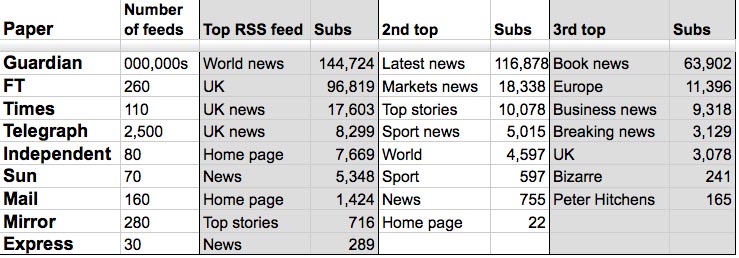As the mainstream media shifts to writing more online content, its standards and guidelines are up for discussion. Just how much of other people’s work on external sites can/should you use and how should you attribute in articles?
Stephen Hutcheon, of the Sydney Morning Herald, flagged up an issue in a blog post on February 5. He is not happy with the way material from an interview he conducted with GoogleEarth (30/01/09) was used in an article on TimesOnline by Mike Harvey (30/01/09) – the latest version of which is at this link.
Hutcheon’s account can be read at this link with a screen grab of the Times’ original article.
The original Times piece shows the Sydney Morning Herald was named in the third paragraph, and, later in the piece, it again specified ‘Mr Hanke told the newspaper’.
Hutcheon had two complaints:
- Firstly, that Harvey had not linked to his original article.
- Secondly, the proportion of the article made up of Hutcheon’s quotes, which Hutcheon feels weren’t adequately labelled as his own work.
According to Hutcheon, Mike Harvey then contacted him with a ‘sincere apology’. “He said it was not his publication’s policy to link back to original articles but said that as a gesture of goodwill, they would do it.”
The TimesOnline article now has a link to the original SMH article, but Hutcheon remains unsatisfied:
“I told him I accepted his apology. However, he made no mention about my central complaint about the amount of material he lifted, nor does he appear to have cut out any from his piece. But that’s about as much as I can do. That, I told him, was an ethical matter between him and his editors.”
Journalism.co.uk asked Hutcheon about his own paper’s linking policy, via email. Hutcheon said:
“My issue is less with the lack of a link. We [SMH] don’t have a hard and fast policy on links. If we quote a par or so, no need to reference where it came from. But if we write a story about this amazing thing someone’s photographed or found, or written and the story is largely based on the other person’s discovery or effort, then yes. It’s a bit like writing about a YouTube video without pointing readers to it. Mike apologised but failed to cut back the almost 500 words – most of them direct quotes from my one-on-one interview with John Hanke. If traditional news organisations are prepared to let their reporters get away with this type of cheap journalism, then it’s a race to the bottom and we’re all doomed. If everyone just copies everyone else, who is left to do the original reporting?”
Journalism.co.uk contacted Tom Whitwell, assistant editor of TimesOnline to clarify the situation.
He said the Times’ linking policy was being worked on and while there ‘was no official linking policy’, journalists could link to other work at the moment.
However, he said, the subbing system and workflow in place – used for online as well as print work – meant links often got omitted. But ‘the general policy would be to link out to things’, he said.
“In terms of the principle I’m extremely firm that [we link] not as courtesy, but as service to the readers.”
In regards to the proportion of quotes used, Whitwell said:
“I think it’s fairly clear that he [Hanke] was talking to the Sydney Morning Herald (…) that particular example is reasonable.
“This isn’t something we do often as a policy. We don’t have a policy to do this regularly – I think in this particular instance it’s fairly clear to the reader what the story is.
“We do need to have a clear written policy at what point we link, and I’m in the process of putting that together. That to me, is interesting, the motivations for linking. To me, it’s purely about providing the service to readers (…) a better way of telling the story. The idea that it’s good manners, legally crediting something, isn’t the key thing for me.
“It is very different for online than print (…) I don’t want to get into the way some other newspapers operate, which is rather different from the way we operate, in terms of using material from other sites. In some sites there is real culture of picking up stories from lots and lots of places, constantly, as a matter of course. That’s not something we usually do,” Whitwell said.
The problem with linking arose in the production system, he said, which “has no way of capturing URLs, a purely manual process – I suspect this piece went through this process. We need to work out how to get the process to work.” Getting more links into place is ‘tricky’, but ‘not impossible’, he added.
Journalism.co.uk also contacted the Times piece’s author Mike Harvey, who did not respond by email.
Here’s an example where a paper did not attribute at all: a case over at Regret The Error, involving the NY Daily News, in which an accusation was made that material had been lifted from the Express-News, ‘without attribution’, for a piece on NYDailyNews.com.
A later amendment at NYDailyNews.com noted that ‘An earlier version of this story should have attributed quotes by certain individuals to reporting by the San Antonio Express-News.’
Hutcheon’s post hasn’t yet received any comments; perhaps this one is up for debate? Just how much is too much?
